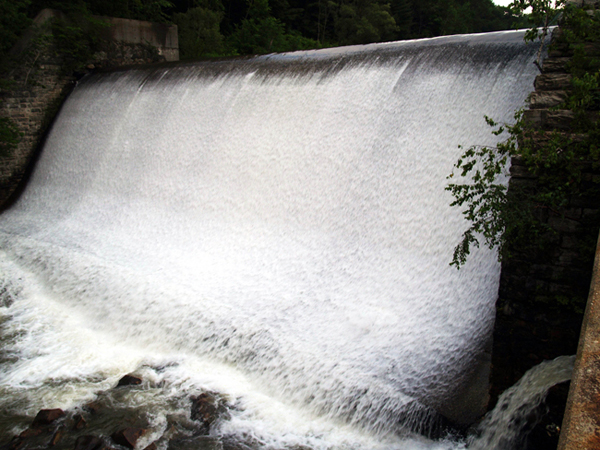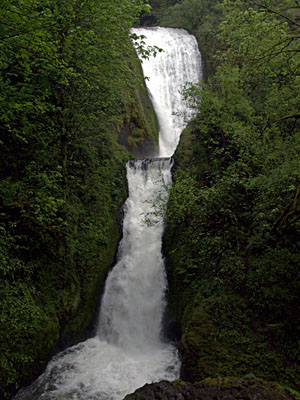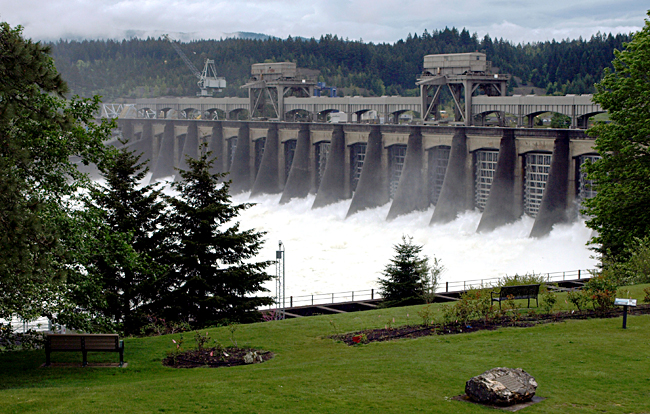Hydraulic Information
Today, information flows like water. The University of Houston's College of Engineering presents this series about the machines that make our civilization run, and the people whose ingenuity created them.
Let's think about the hydraulics of information: We all know that water seeks its level. Remember how Hurricane Katrina breached the Pontchartrain levees and water flowed everywhere. Water is contained, both naturally and artificially, all around us -- in lakes and rivers, reservoirs and tanks. And, every time containment breaks down, water flows outward and downward.
That's how information flows. A kind of gravitational force draws it toward our minds while barriers separate us from it. A lake might lie in the hills above us. But, to use its water, we must first build an aqueduct. Likewise, information doesn't just flow into our heads from a library. We have to go to it. We need to use the catalog. We need to be able to read. And so on.

Secrecy can be a barrier to information. But, like a dam, it need only be punctured once. Think about the WikiLeaks scandal. For all the handwringing, what did we learn? That diplomats swap embarrassing gossip? That some bankers engage in shady practices? Damage was done, no doubt, but far less than we'd expected, because there were so few surprises. Among so many barriers to the flow of information, secrecy is a pretty flimsy one.
 The greater barrier is the effort needed to gain common information. People email me daily, wanting want more information about this or that. I send them a book title and am told, politely, that they wanted an Internet site. I once could sniff self-righteously at that. But no more. The content of the Internet is expanding like a blast front. We're reaching a tipping point where, even among scholars, it becomes the court of first resort.
The greater barrier is the effort needed to gain common information. People email me daily, wanting want more information about this or that. I send them a book title and am told, politely, that they wanted an Internet site. I once could sniff self-righteously at that. But no more. The content of the Internet is expanding like a blast front. We're reaching a tipping point where, even among scholars, it becomes the court of first resort.
Even simple human concourse is a kind of information transfer. Our neighborhood is an amicable place, though we go our own ways. Then Hurricane Ike struck and we all suffered damage and outages. Trouble drove us into the street where we socialized, exchanged help and shared ourselves. The flow of water and information strangely became one. Ike breached the information flow barriers created by our own self-absorptions.
That event helped me better understand the flurry of grass-roots revolutions in the Middle East, after the social media reached a tipping point. Populations with common needs were now drawn together by yet another breakdown of information levees.
I think we're seeing something even beyond an information revolution. This looks like a revolution of human consciousness comparable to that brought on by the invention of alphabetic writing. We're being changed in a profound way by floodtides of facts.
Even the last ultimate information dam is breaking down -- our own need to be experts. To receive information we must acknowledge some level of ignorance. I see even that constraint of pride crumbling in the wash of Internet information. And, once it goes, we truly are poised to swim in a common sea of understanding.
I'm John Lienhard at the University of Houston, where we're interested in the way inventive minds work.
For more on the alphabet and consciousness, see Episode 1065.
Photos by J. Lienhard
